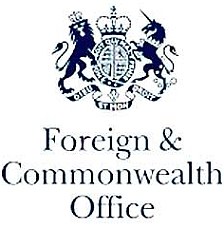Capacity building of public procurement in Serbia
Huge sums of money necessary for the functioning of public services go to corruption in the area of disposing of public funds on public contracts. This is mostly due to the fact that about 16% of the total gross domestic product goes to the procurement of public goods, works and services (estimate for Serbia). It is these large sums of money that are tempting and offer ample opportunities for corruption in the public sector. In Serbia, the volume of public procurement is even higher than in other countries due to the large number of non-privatized companies. At the same time, the potential risk of corruption is higher due to the strong influence of political parties on the work of public enterprises and deep-rooted practices and mechanisms for circumventing the law. Globally, the damage caused by corruption is estimated at between 10 and 25% of the contract value, while no reliable data of this type exists for Serbia.
The capacity of public procurement authorities has most often been neglected in the fight against economic corruption. These institutions have an insufficient number of employees who often do not have enough experience. Transparency Serbia believes that the work of employees in public procurement bodies, as well as their ability to perform their tasks in accordance with legal obligations and efficiently, are among the most important factors that should ensure transparency and efficiency of public procurement.
Serbia has had relatively modern public procurement legislation since 2002. The Law on Public Procurement was the basis for the establishment of the Public Procurement Directorate and the Commission for the Protection of Bidders' Rights during the years that followed. Although this law, institutions and procedures have significantly influenced the improvement of previous practice, there are many problems in the law, its implementation and the work of the mentioned institutions that must be addressed in the following period.
The aim of the project was to further promote the principles of free movement of goods and services, non-discrimination and transparency which are an integral part of agreements with the EU and which are sometimes violated due to corruption. The project also included the following activities:
• Assessment of current legislation and public procurement processes in Serbia; making recommendations for improvement
• Creating a methodology for capacity assessment and capacity assessment of public procurement authorities
• Preparation of proposed amendments to the law, bylaws and internal acts of public procurement bodies
• Organizing training and providing technical assistance to public procurement authorities
• Monitoring public procurement procedures
• Advocating for the obligation of the competent authorities to accept and adopt the recommendations and to raise the level of awareness on the issues related to public procurement
• Closing conference with participants from the Western Balkans
This project was implemented in cooperation with the Public Procurement Directorate and the Commission for the Protection of Bidders' Rights of the Government of the Republic of Serbia.
"Strengthening the capacity of public procurement in Serbia" is a continuation and upgrade of this project.
With the entry into force of the new Law on Public Procurement, on January 6, 2009, new obligations were introduced for the Public Procurement Administration, but also for all contracting authorities. Transparency Serbia continued the activities started in the previous period, such as monitoring public procurement procedures, drafting amendments to the law, bylaws and internal acts of public procurement bodies, raising awareness on issues related to public procurement, but also focused its activities on to assist the bodies in charge of public procurement in fulfilling their obligations through the submission of initiatives to the competent authorities for the elimination of identified problems in public procurement procedures and cooperation in the development of professional literature for the training of public procurement officers.
The project was funded by: Foreign and Commonwealth Office


The views expressed belong to the authors and do not necessarily represent the views of donors.
In Serbian:
- Efikasne javne nabavke
- Press-clipping
- Zakon o javnim nabavkama
- Inicijativa Drzavnom vecu tuzilaca, vrednovanje tuzilackog rada u prekrsajnim postupcima[doc]
- inicijativa Ministarstvu finansija, izmene Zakona o javnim nabavkama[doc]
- Inicijativa Ministarstvu pravde oko prekrsajnog sankcionisanja [doc]
- Inicijativa Odboru za finansije u vezi sa izvestajem DRI [doc]
There are no articles in this category. If subcategories display on this page, they may have articles.

















